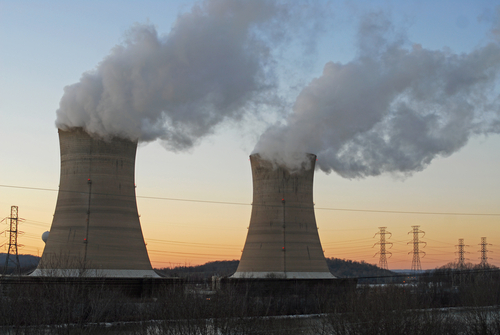
State legislation introduced last month that seeks to bring in government subsidies to keep local nuclear power plants from closing is being heavily criticized by The Heritage Foundation, which has called the action short-sighted in terms of stifling Pennsylvania’s competitive energy market.
The Keep Powering Pennsylvania Act, introduced by Rep. Tom Mehaffie (R-Dauphin), seeks to expand the state’s renewable energy standards to mandate the purchase of electricity from Pennsylvania’s five nuclear power plants. It would also create a stream of government subsidies provided to those plants to keep them open and operating. The legislation and its supporters argue that keeping the state’s nuclear power plants from closing is necessary to reduce carbon-dioxide emissions and preserve jobs.
“Yes, nuclear power emits no air pollutants or carbon-dioxide emissions and is a reliable, energy-dense source of power that produces hundreds of megawatts for decades with very little physical footprint,” Katie Tubb, a senior policy analyst for energy and environmental issues in the Thomas A. Roe Institute for Economic Policy Studies at The Heritage Foundation, wrote. “However, state governments must see beyond the immediate economic plight of specific nuclear power plants and consider the ramifications that taxpayer subsidies have on the broader framework of electricity choice and competition, which has greatly benefitted Pennsylvania’s residents and businesses.”
If enacted, the Keep Powering Pennsylvania Act would make Pennsylvania the fifth state to implement federal subsidies for nuclear plants while exempting more than a third of Pennsylvania’s electricity resources from normal market rules by expanding the state’s mandatory renewable energy standard to include nuclear energy.
The legislation intends to prevent the closure of the five Pennsylvania nuclear plants. However, Exelon has already announced plans to close Three Mile Island in October 2019 and FirstEnergy has announced plans to close Beaver Valley in 2021 as part of a 2016 decision to divest its power-generating assets.
“Not all of Pennsylvania’s reactors are in economic hardship,” Tubb wrote. “It makes no sense to subsidize profitable companies, as H.B. 11 would do. However, even subsidizing failing ones will not solve the challenges facing surrounding communities when nuclear power plants eventually close, either by the healthy creative destruction of competitive markets or by plants reaching the end of operating licenses.”
Mehaffie noted in a March 10 statement that nuclear energy needs to be recognized for long-term employment, economic, environmental and grid resilience benefits and will reduce ratepayers utility bill increases from $2.39 per month to $1.77 per month. Currently, Pennsylvania’s nuclear industry accounts for 16,000 full-time jobs and provides $69 million in net state tax revenues each year, according to Mehaffie’s statement.
Tubb said there are several costs not being considered beyond the immediate impact Pennsylvania residents will see in their utility bills.
“A nuclear energy mandate and credit program is principally the adoption of a government-centric approach and rejection of the competitive electricity market that has served Pennsylvania families and businesses well,” she wrote.
PA Chamber of Business and Industry President and CEO Gene Barr similarly stated that the legislation would instead impose greater costs on Pennsylvania residents and businesses, distort the market, and stifle private sector innovation in the energy sector.
“By walling off nearly 70 percent of the market, Pennsylvania is in jeopardy of losing its position as the largest net exporter of power in the country,” Barr said. “Imposing further mandates on utilities and ratepayers are sure to increase costs – with some estimating that families and businesses would be forced to pay more than $1 billion a year in higher energy costs. In particular, it is estimated that Pennsylvania manufacturers in a variety of industries will see higher energy costs up to several hundred thousand dollars per year.”
Tubb argues that subsidy and mandate programs undermine healthy state markets by being patently unfair to past investors and destroying the possibility of future investments and the creation of future jobs under ever-changing political influence. The programs also create a barrier to entry that discourages organic innovation, stifles healthy competitive pressure, ignores customer preferences, and will ultimately not prevent plant closure.
“Legislators should defend competitive markets and eliminate policies that created market unfairness in the first place,” Tubb wrote. “Rather than expand the Alternative Energy Portfolio Standard Program, Pennsylvania should eliminate all energy subsidies and trust customers to choose their electricity services.”